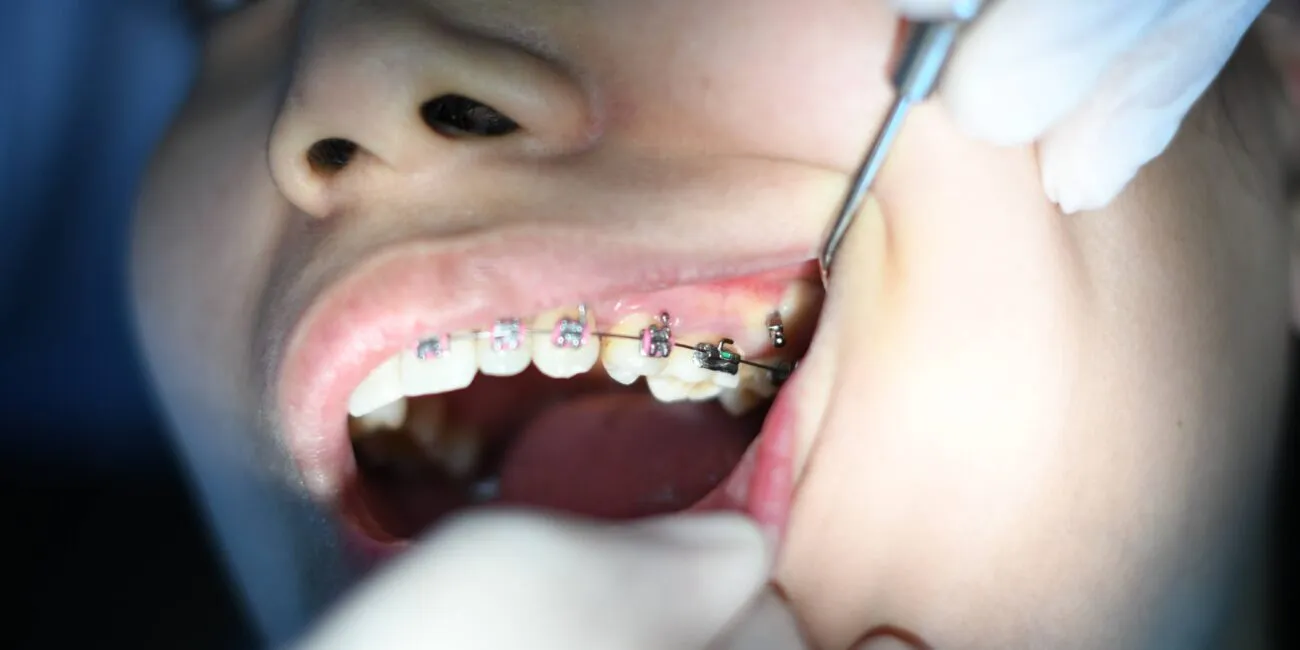

Welcome to the world of dental braces! Many people dream of having a perfect set of teeth, but unfortunately, not all of us are born with straight teeth. Fortunately, with modern orthodontic treatments, anyone can achieve a perfect smile with straight teeth. However, many people worry about the cost of orthodontic treatment and assume that it is unaffordable.
That’s where we come in! In this article, we will be discussing factors that can affect the cost of braces, the risks of getting braces on a budget, and also how can you maintain your oral hygiene after getting braces. Whether you’re a student or a working professional, we’ll provide you with information on getting braces, so you can make an informed decision about the best orthodontic treatment for your needs and budget. Let’s get started!
The cost of braces in Malaysia can vary depending on several factors. The type of braces you choose, the severity of your orthodontic issues, the duration of treatment, and the location and expertise of the orthodontist can all impact the total cost. In this article, we’ll discuss these factors and provide tips on how to keep the cost of braces within your budget.
One of the primary factors that affect the cost of braces is the type of braces you choose. Traditional metal braces are generally the most affordable option, while ceramic or lingual braces can be more expensive due to the materials and technology used. Invisalign, a popular alternative to traditional braces, can also be more costly due to the advanced technology used to create custom aligners. If you’re looking for an affordable option, traditional metal braces may be the best choice for you.
The severity of your orthodontic issues can also impact the cost of braces. If you have more complex orthodontic issues that require a longer treatment duration, the total cost of braces can increase. However, it’s important to note that delaying treatment for financial reasons can lead to more severe and expensive orthodontic issues down the line. If you’re concerned about the cost, talk to your dentist about payment plans or financing options that can help you afford the treatment you need.
The location and expertise of your dentist can also impact the cost of braces. Dentists in urban areas tend to charge more due to higher overhead costs, while those in rural areas may be more affordable. Additionally, dentists with more experience and expertise may charge more for their services. However, investing in an experienced dentist can also ensure that you receive high-quality treatment that can help you achieve the best possible outcome.
To keep the cost of braces within your budget, consider talking to your dentist about payment plans or financing options. Many orthodontic offices offer flexible payment plans that allow you to pay for treatment in instalments. You may also be able to apply for financing through a third-party provider to help cover the cost of braces. Additionally, make sure to compare prices from different dental clinics to find the most affordable option that meets your needs.
In conclusion, several factors can impact the cost of braces in Malaysia. To keep the cost within your budget, consider the type of braces you choose, the severity of your orthodontic issues, the location and expertise of your dentist, and the financing options available. Investing in high-quality treatment can ensure the best possible outcome, so don’t hesitate to talk to your dentist about the best options for your needs and budget.
While getting braces on a budget can be a great way to achieve straighter teeth without breaking the bank, it’s important to be aware of the potential risks associated with cutting costs. In this article, we’ll discuss the potential risks of getting braces on a budget and provide tips on how to ensure that you receive safe and effective treatment.
One of the most significant risks associated with getting braces on a budget is receiving treatment from an inexperienced or unqualified dentist. Orthodontic treatment requires specialized training and expertise, and a dentist who cuts corners to lower prices may not have the necessary qualifications or experience. This can result in improper treatment and potentially serious complications. To ensure that you receive safe and effective treatment, always do your research before choosing an orthodontist. Look for a dentist who is licensed and experienced in the specific type of treatment you need.
Another risk of getting braces on a budget is the use of low-quality or substandard materials. Some dentists may offer lower prices by using cheaper materials that may not be as effective or durable as higher-quality options. This can result in discomfort, poor results, and potentially even damage to your teeth. To avoid this risk, ask your dentist about the materials they use and make sure they are of high quality and FDA-approved.
Additionally, getting braces on a budget can increase the risk of improper diagnosis and treatment planning. Orthodontic treatment requires careful evaluation and planning to ensure that the treatment is effective and minimizes potential complications. A dentist who offers lower prices may rush through the diagnostic process or overlook critical details, resulting in an incorrect diagnosis or an ineffective treatment plan. To avoid this risk, choose a dentist who takes the time to thoroughly evaluate your condition and develop a personalized treatment plan that is tailored to your specific needs.
In conclusion, while getting braces on a budget can be a great way to achieve straighter teeth economically, it’s important to be aware of the potential risks associated with cutting costs. To ensure that you receive safe and effective treatment, choose an experienced and qualified dentist, ask about the materials they use, and make sure they take the time to thoroughly evaluate your condition and develop a personalized treatment plan. With these precautions, you can enjoy a beautiful and healthy smile without compromising on quality.
Maintaining good oral hygiene is essential when you have braces, as braces can make it more difficult to clean your teeth properly. Neglecting your oral hygiene can lead to dental problems, including cavities, gum disease, and bad breath. In this article, we’ll discuss how to maintain good oral hygiene and ensure the best possible outcome after getting braces in Malaysia.
The first step in maintaining good oral hygiene with braces is to brush your teeth regularly. It’s recommended to brush your teeth at least twice a day, using a soft-bristled brush and fluoride toothpaste. When brushing with braces, pay extra attention to the areas around the brackets and wires, as these can easily trap food particles and plaque. Use circular motions and be gentle, so as not to damage the braces or wires.
Flossing is also crucial for maintaining good oral hygiene with braces. It can be challenging to floss between the brackets and wires, but there are special flossing tools designed specifically for people with braces. Use these tools or a water flosser to clean between each tooth and around the brackets and wires, and make sure to do this at least once a day.
It’s also important to maintain a healthy diet when you have braces. Avoid hard, sticky, or chewy foods that can damage the braces or wires, and opt for soft, healthy options like fruits, vegetables, and lean proteins. Additionally, limit your consumption of sugary foods and drinks, as these can increase the risk of tooth decay.
Regular visits to the dentist are also essential for maintaining good oral hygiene and ensuring the best possible outcome after getting braces. The dentist will monitor your progress and make any necessary adjustments to the braces or wires. They may also recommend additional treatments or procedures, such as professional cleanings or fluoride treatments, to help you maintain good oral hygiene and prevent dental problems.
In conclusion, maintaining good oral hygiene is essential for ensuring the best possible outcome after getting braces in Malaysia. Brush and floss regularly, maintain a healthy diet, and visit your dentist regularly to keep your teeth healthy and your braces in good condition. With these simple steps, you can enjoy a healthy, beautiful smile even while undergoing orthodontic treatment.
You might still be uncertain about what can expect from getting braces, if that’s the case, please do not hesitate to contact us today for a consultation. At White Perfect Dental, we are committed to resolving your dental concerns and are always happy to help.




Fissure sealant
Dental fillings
Root canal treatment
Tooth extraction
Wisdom tooth removal
Crowns & bridges
Branches & Operating Hours
Contact Information
Make an Appointment


Fissure sealant
Dental fillings
Root canal treatment
Tooth extraction
Wisdom tooth removal
Crowns & bridges
Branches & Operating Hours
Contact Information
Make an Appointment
Copyright © White Perfect Dental Surgery Sdn Bhd (Company No. 201001012274 (1000198-P)).
Website Managed by MYSense. All Rights Reserved.